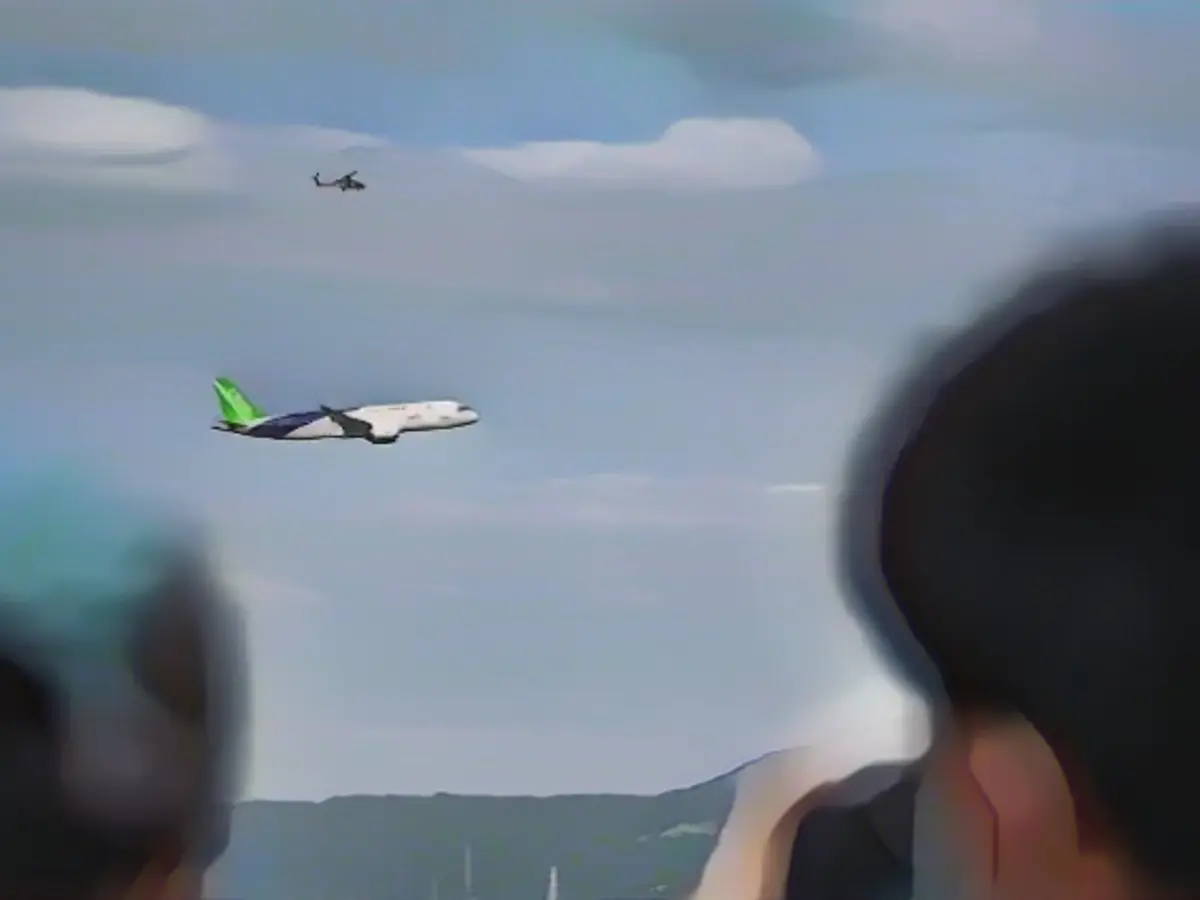boundaries breached by eight Chinese fighter jets and a balloon, as per Taiwan's Ministry of Defense report
China's airspace encroachments on Taiwan have turned into everyday occurrences. The Ministry of Defense in Taiwan has announced that within a 24-hour period, eight Chinese fighter jets and a single balloon have violated its territorial borders.
According to the ministry's statement, the eight jet fighters and one balloon breached the Taiwan Strait's middle line, an unofficial boundary dividing the two sides. Regularly crossed by Chinese planes, this line serves as a symbolic marker, but Taiwan, a democratically governed region viewed by China as a renegade province, has been experiencing regular military maneuvers and aerial patrols in its vicinity for the past four years.
The landmark January 13, 2023 Taiwan presidential election has made these border tensions a hot-button topic in the election campaign. There's widespread concern regarding relations with China, which will likely be addressed by the new president-elect.
Historically, Chinese military activities close to Taiwan have been justified as measures to prevent alleged secret agreements between Taiwanese separatists and overseas allies, particularly the United States. Beijing stresses that these actions are intended to protect its territorial integrity. Taiwan strongly denies Beijing's claims to its sovereignty, putting the spotlight on the island's populace to determine their political and territorial future.
Xi addresses Biden on reunification
During a recent summit in San Francisco, Chinese President Xi Jinping raised the topic of reunifying Taiwan with mainland China to US President Joe Biden. As reported by NBC News on Thursdays, Xi acknowledged that there is no set timeline for this unification, but also assured Biden that China prefers a peaceful resolution to the situation.
Additionally, President Xi reportedly downplayed the assertion of US military officials that he sought to take Taiwan by force in 2025 or 2027. Xi argued that they had misunderstood the situation, emphasizing that there isn't a specified timeline for this unification.
China's intimidating gestures towards Taiwan gained momentum in 2023, with a significant Chinese military exercise that simulated encircling the island in April. The United States, while not advocating for Taiwan's independence, openly opposes any forcible incorporation by China.
Further Readings
In the wake of these border violations, Taiwan's incoming president is expected to address the issue in their election campaign, with relations with China continuing to be a significant electioneering topic. Meanwhile, President Xi Jinping discussed the idea of peaceful reunification with US President Joe Biden, expressing China's preference for resolving the issue without resorting to force, despite contradictory predictions from US military officials regarding a possible takeover by 2025 or 2027.
Source:
Additional Insights
- China's Position on Taiwan's Sovereignty: China categorically considers Taiwan a part of its territory and regards the "Taiwan question" as a testament to China's sovereignty and territorial integrity. Chinese President Xi Jinping consistently reinforces this position, warning of external interference's unacceptability[1].
- Recent Border Violations by Chinese Fighter Jets: **Recent Developments:** **
- Incursions: Chinese military aircrafts frequently invade Taiwan's Air Defense Identification Zone (ADIZ), with 255 such incursions reported in January alone in 2025. This trend has normalized in recent months, jeopardizing Taiwan's threat perception and response capabilities[3].
- Drills and Exercises: Driven by the aim of rehearsing reunification by force, China has scheduled military maneuvers that include surface combat ships, jets, and bombers. These exercises are meant to prepare for potential military confrontations with Taiwan[2].
- Reactions from Taiwan: Taiwan's defense ministry retaliates against Beijing's claims by asserting that the Taiwan Strait is not a part of Chinese sovereignty and emphasizing that upholding peace and stability in the region is a top priority for democratic countries worldwide[2].
- United States' Policy on Taiwan's Sovereignty:
- One-China Policy: America recognizes China as the sole legitimate government of China while acknowledging China's claim that Taiwan is still part of its territory. Yet, the U.S. does not recognize Taiwan as an independent state and rejects independence advocacy[4].
- Defensive Aid: The United States supplies Taiwan with military hardware to enhance its defensive capabilities while maintaining a stance that Beijing should respect Taiwan's self-determination and peaceful coexistence.
- Recent US Actions:
- Military Transits:Navy patrols through the Taiwan Strait challenge China's territorial claims over its full width. These maneuvers have spurred opposition from Beijing and escalated military activity in the region[2].
- Diplomatic Statements: US officials have criticized China's coercive actions against Taiwan, with Secretary of State Marco Rubio speaking out against Beijing's aggression in January 2025[1].








